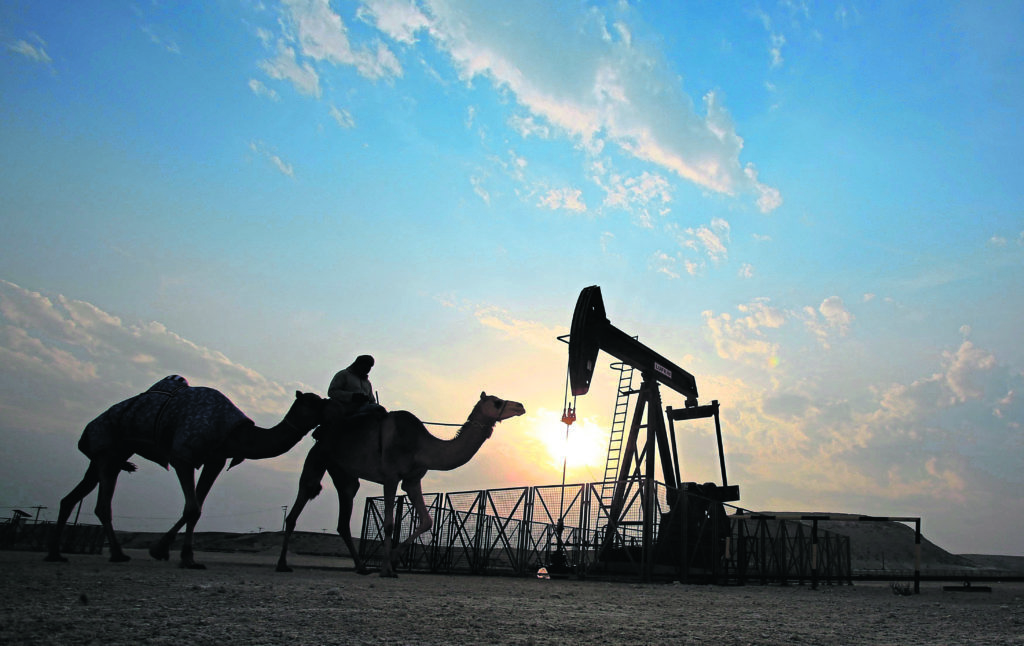
A leading petro-economist has said there are “opposing forces” clouding what may happen when some of the world’s largest oil producing nations meet tomorrow.
Opec (The Organisation of Petroleum Exporting Countries) will gather in Vienna to decide whether to continue cuts on production.
The group is under pressure to allow an increase in global oil production, with the price now above $70 a barrel.
An increase in production would likely lead to a drop in the price, depending on the size.
However, that could reduce demand for oil, having a more lasting effect in the medium-term.
Opec accounts for more than 40% of the world’s oil production.
Professor Alex Kemp, from Aberdeen University, said the current situation has caused some producing countries to benefit, while consuming nations have suffered slightly on fuel costs.
He said: “The price has come up quite significantly over the last several weeks and is now above $74. Consuming countries are suffering a bit and producing countries are gaining a bit.
“Opec must consider what impact any action they take will have, whether they view the possibility of a further increase as being beneficial or not.
“There are these opposing forces at work. Right now, before the event, it is a little unclear what they will decide.”
In late 2016, Opec along with its allies such as Russia agreed on a 1.8million barrel a day reduction in output.
Since then, the oil price has increased by around 75% to almost $80 a barrel.
There are 14 countries in Opec, with members such as Iran, Iraq, Venezuela and Algeria opposing a radical increase in production.
US President Donald Trump wants to unwind some of the cuts for a “moderate” supply boost.
Meanwhile Russia is pushing for a larger quota increase of 1.5million barrels per day.
Earlier this week Iranian oil minister Bijan Namdar Zanganeh told reporters he did not believe that an agreement could be reached.
Professor Kemp added that Saudi Arabia, the largest producer in the group, could be aiming for an increase in production, increasing the attractiveness of state-owned Saudi Aramco before a 5% flotation on the stock market planned later this year.
He added: “For an oil price increase, that’s an opportunity of a near-term gain.
“Saudi Arabia in particular as the leader would like to reduce the cuts to reduce the budget deficit and increase the attractiveness in buying shares in Saudi Aramco, but they must be careful not to knock off the growth in demand for oil production in the world.”
Despite the “opposing forces” there has been discussion of a potential compromise of increasing production by between 300,000 and 600,000 barrels per day.
Professor Kemp thinks this would be reasonable.
He said: “An increase in production of 300,000 a day would lead to a fairly subtle reduction compared to what we have seen recently. In other words, it won’t trouble the price much.
“An increase of 600,000 a day might produce some downward movement in the price but it would still be recognised as a rational move by OPEC.
Professor Paul de Leeuw, director of the Oil and Gas Institute at Robert Gordon University, said an increase in production is a “logical” outcome from the Opec meeting.
A decision was made in November of last year to extend existing production cuts in order to improve the oil price.
However, Professor de Leeuw argues that supply levels are lower than were anticipated at that point.
That is particularly seen through the economic collapse in Venezuela as well as export sanctions imposed on Iran.
He said: “There could be more production in some shape or form.
“In November 2017 it was agreed to extend the existing cuts until the end of this year. Since then, a number of things have changed. On the supply side, a number of countries have dramatically reduced production, such as Venezuela and Iran with the sanctions imposed upon it.
“On the supply side there is less oil on the market than was envisioned in November last year so the demand is higher than was anticipated.
“If you look at that there is a logical case for a supply cut to be reduced.
“However, there is a hugely strong political overlay at the moment, particularly with countries like Iran and Venezula so it is very difficult to say what the outcome will be.”
Recommended for you

